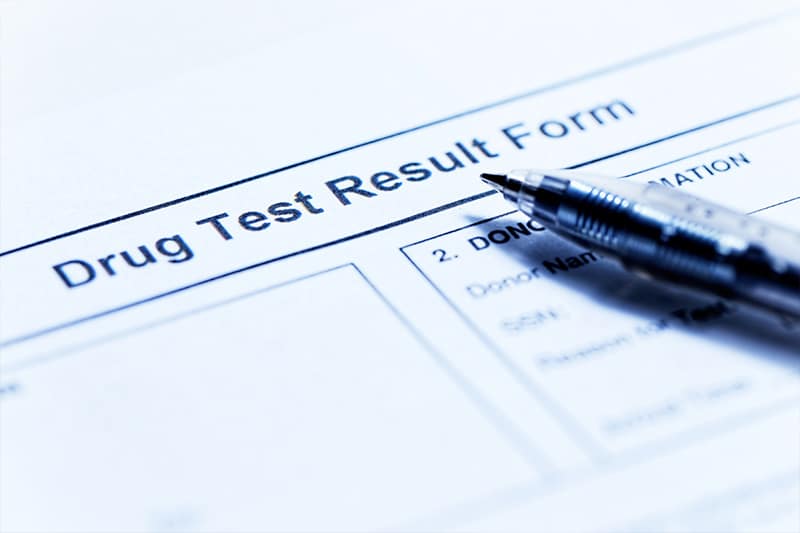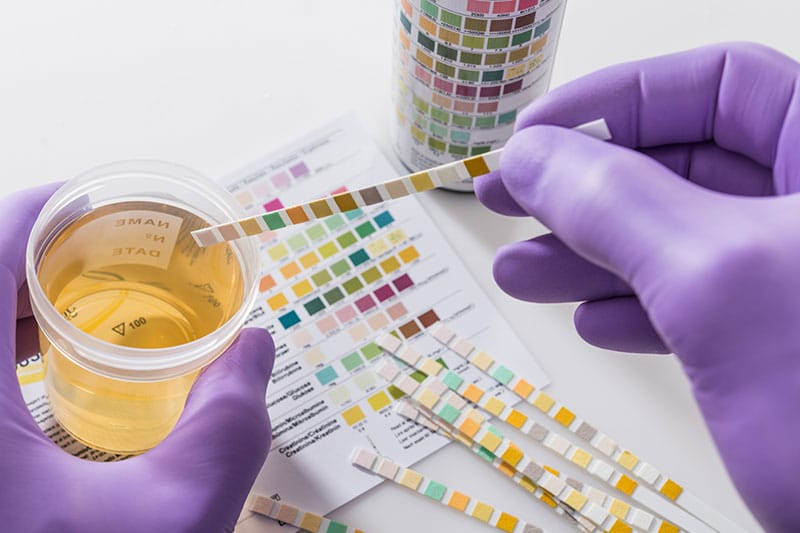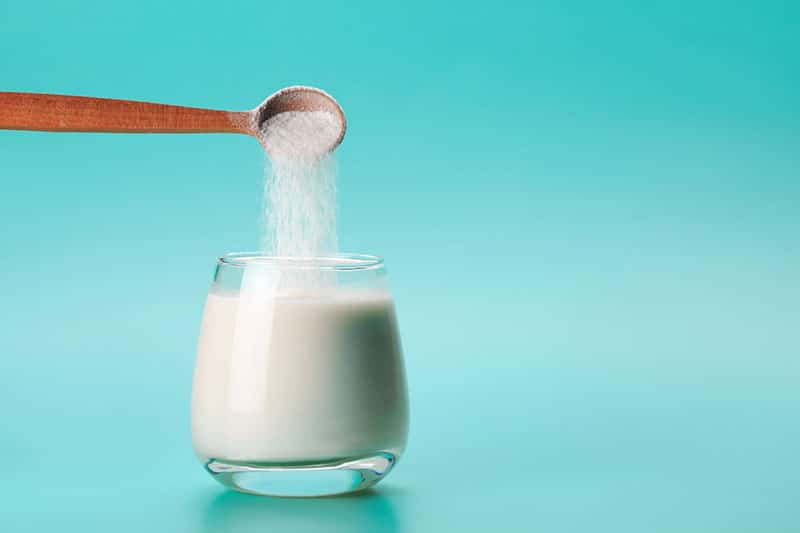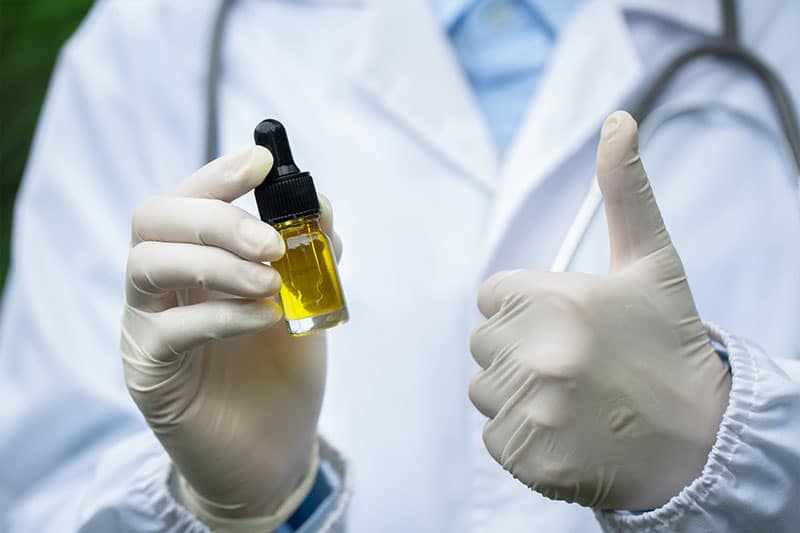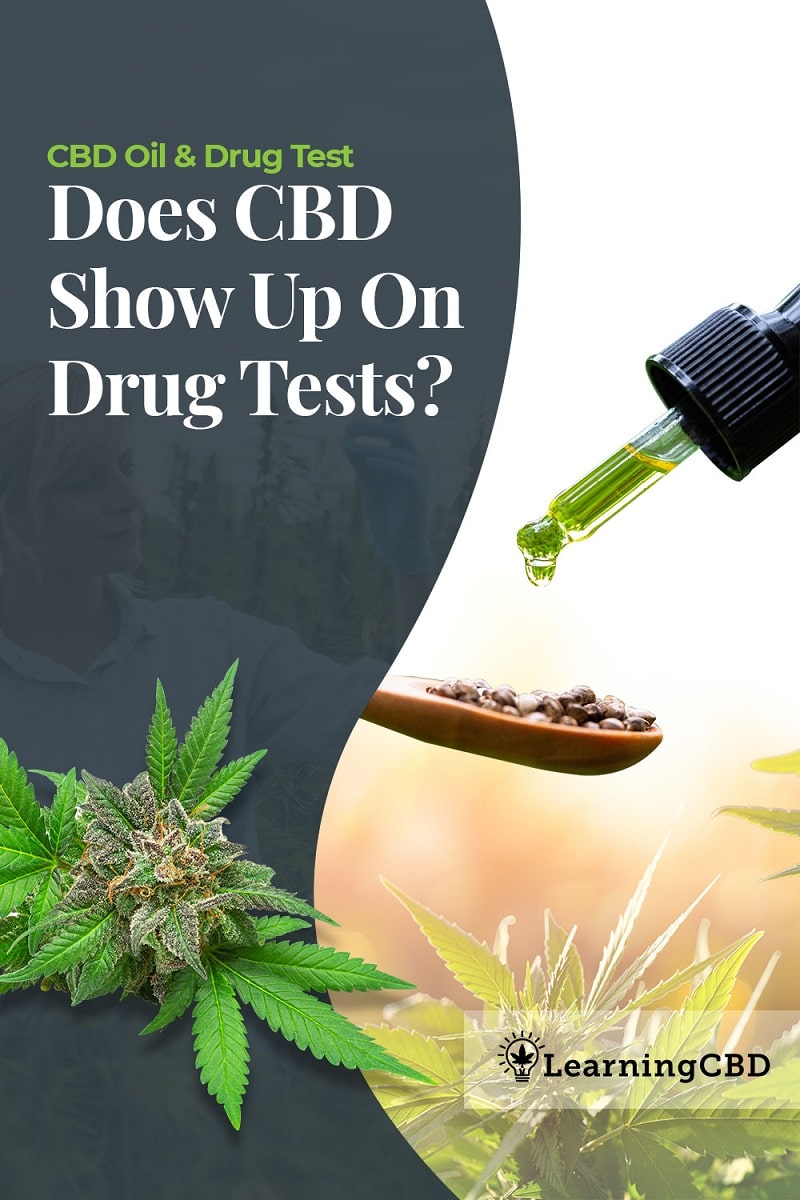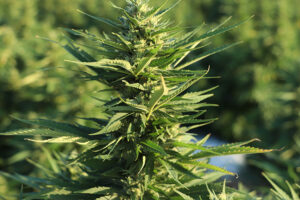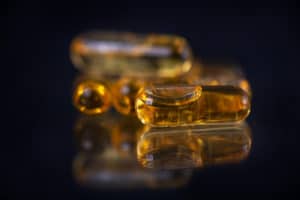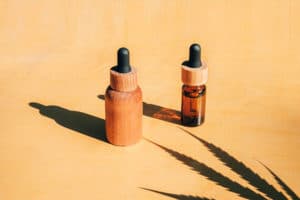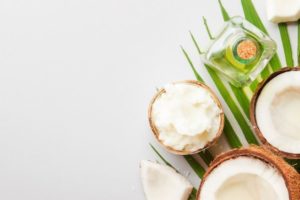With the legalization of hemp-derived CBD, you might think that you’re in the clear when it comes to a drug test.
After all, CBD is now legal, and when it’s derived from hemp plants, CBD is not supposed to have more than 0.3% THC. That’s nothing, right? And, it’s not like you’re getting high, either. You’re using CBD for something innocuous like knee pain, insomnia, or Sunday night stress.
The FDA has even approved a pharmaceutical drug for pediatric epilepsy that contains CBD, so it’s natural to assume that you can take CBD at your leisure without any repercussions. But, if you’re reading this article, you’ve probably heard horror stories about CBD users failing a urine drug test even though they’re not drug users. What gives?
The good news is that CBD oil shouldn’t show up on a drug test. The bad news is that it sometimes does, and for reasons that you might not expect.
This article will explain how and why that happens and give you guidelines to avoid a false positive.
Does CBD Oil Contain THC?
Sometimes. The truth is that even though CBD oil from hemp is not supposed to have THC, there are times when it’s in the product, and the concentrations could be higher than you’d like.
Whether or not your CBD products contain THC will depend, in part, on whether you are using a full or broad-spectrum CBD or a CBD isolate. There are also some other situations in which CBD oil can contain THC. This situation can happen if you are buying a CBD product that’s derived from marijuana, not hemp.
Per the FDA, hemp-derived CBD can contain up to 0.3 percent THC. In most cases, this isn’t enough to show up as a positive on a drug test, but it can still happen. Because THC is fat-soluble, it can build up in the system over time, and it takes longer to exit the body. Chronic and heavy users can test positive for several days, if not weeks after their last use.
The discrepancy about how much THC a CBD oil occurs when companies aren’t precise with their manufacturing or extraction processes.
To understand how this can affect a drug test, it helps to have some background about how CBD products are made. CBD can come in a variety of forms, including oils, isolates, and edibles. When the CBD is extracted from the hemp plant, there are a lot of variables that can influence how much (if any) of the THC is removed.
Sometimes, THC is left in the product on purpose, as is the case with full-spectrum CBD. However, it’s not unusual for more THC to be left over as a residual than was intended by the manufacturer.
For example, though legal CBD is supposed to come from a hemp plant with negligible amounts of THC, there are times when the hemp plants are unintentionally crossbred with marijuana plants. The resulting plants can have high amounts of THC. If the crop isn’t tested in a clinical lab before processing, then it can affect the overall THC content.
There’s also the challenge of removing THC during the extraction process. For CBD to be consumable, it has to be isolated from the plant. There are numerous ways to extract CBD, and there’s a lot of room for human and mechanical error. And, since these processes are still new, there can be a learning curve.
While lab testing each batch can potentially ensure that the THC content is accurate, there’s also the issue of whether the labs are reliable. Currently, there’s a long waiting list for labs, and turnaround times are growing. New hemp testing labs are cropping up weekly, and it can be challenging to determine which ones are skilled and experienced, and which ones might do quality work.
Also, because the FDA has its hands full and CBD products are popping up everywhere, regulation is lax. This means that it’s not unusual for CBD products to contain more THC than the label specifies. When this happens, you might be consuming high amounts of THC without even knowing it. As a result, you could easily end up with a positive drug test.
How Long Does CBD Stay in Your System?
The half-life of CBD varies, and how long it stays in your system depends on a variety of factors, including your dosage, frequency of use, and body composition. Generally speaking, though, you can expect CBD to remain in your system for at least three days and up to one week.
However, drug tests aren’t typically looking for CBD. Instead, they’re looking for the THC compound, so the better question to ask is how long THC stays in the body and whether it can be detected during drug testing.
The timeframe varies widely and can range from three days to 30 days. The habits of the user, as well as the type of test administered, will influence the detection window. For example, a hair test will be able to detect the presence of THC compounds longer than a saliva test would. Also, a test with a lower detection threshold is more likely to cause someone to fail.
There are numerous variables, and even your genetics can play a part in how fast you metabolize CBD.
Here’s a summary of all the factors that can speed up or slow down the CBD metabolization window:
- Body fat: People with higher body fat percentages will retain more of the CBD and THC compounds for more extended periods.
- Fluid intake: Drinking more fluids will help your body flush CBD faster, especially if you drink more water before the test. However, if you are taking a urine test and drink too much water beforehand, it can dilute your sample and arouse suspicion.
- Genetics: Yes, some people indeed metabolize CBD and THC faster, and it’s based on nothing more than your genes.
- Exercise: People who exercise regularly will metabolize chemicals faster, flushing CBD and THC from their bodies.
- Testing method: Saliva tests have the shortest detection window, and hair tests have the longest. Urine tests are common, and results can show the presence of THC for as long as 30 days.
- Usage frequency: Habitual users will store these compounds in their system for longer. If you used CBD one time or infrequently and it contained THC, you might not have anything to worry about, especially if the test isn’t for a week after consumption.
How Cannabis Drug Tests Work. Is there even a CBD Oil Drug Test?
It’s important to note that the drug tests aren’t testing for CBD. There is no CBD oil drug test. The World Health Organization has gone on record saying that CBD causes neither physical or mental impairment. Further, after the passage of the 2018 Farm Bill, hemp-derived CBD is not regulated by the DEA (Drug Enforcement Agency). Instead, CBD falls under the jurisdiction of the FDA (Food and Drug Administration.
What these drugs tests are looking for is explicitly THC (tetrahydrocannabinol). As a reminder, this is the cannabinoid found in marijuana plants that makes people “high” or “stoned.” As marijuana has become legal in a growing number of states, there have been a lot of questions about whether companies and government organizations should still administer drug tests looking for THC.
On the one hand, employers want to keep their pool of talent as large as possible, which makes them hesitant to rule out qualified candidates simply because they test positive for THC. Still, some manufacturing and public service jobs require peak, unimpaired physical and mental performance. Careers in the medical profession, the transportation industry, and safety sectors are likely to continue testing for the foreseeable future.
Depending on who is administering the test and what the intended use is, the test method is bound to vary. Employers may opt for a urine test, while a probation officer might prefer the speed of a saliva test, for example. The most common drug testing methods are:
Urine Test
Urine tests are often the standard for drug tests, particularly in a pre-employment drug screening. The biggest determinant of whether there will a positive drug test result depends on the frequency of use. For infrequent users, THC can be detectable in the system for up to five days. Habitual, chronic users, especially those with higher body fat composition, can keep THC in their body for up to 30 days.
The potential for a positive urine drug test also depends on the sensitivity of the test. There are different cut-off points for concentrations. Some are 20 ng/ml, and others are 50 ng/ml. When the cut-off points are 50 ng/ml, occasional users are less likely to show positive. The chances are even lower if you’re taking CBD products with trace amounts of THC.
Another variable is whether the testing is being done for THC or the metabolites of the compound. Metabolites have a longer detection period, increasing the chance of a positive test result.
Hair Test
Hair tests are administered on recent hair growth, and the detection period is about 90 days. This drug test looks for the metabolites, not the actual compound, making it a more sensitive test. Typically, the hair sample is 1.5 inches, which provides a loophole for people with shorter hair. If the person being tested has hair shorter than 1.5 inches, then the detection window will logically be briefer.
Saliva Test
Saliva testing has the shortest detection window as the compounds exit the system most quickly in saliva. However, saliva drug tests also have the most sensitive detection levels at 0.5 ng/ml. The compounds (not the metabolites) can be detected in a drug test for about 72 hours after usage.
Blood Test
Infrequent users can expect a positive drug test result for up to 24 hours after use, and heavier users can still test positive for up to seven days. Blood tests are rarely given, mostly because they are invasive. They can also be more difficult to administer. You’re not likely to undergo a blood test for employment, but you may have to take this type of test if you’re involved in a DUI or auto accident.
It’s worth repeating and emphasizing that these testing methods are looking for THC, not CBD. If your CBD products don’t contain THC, then you should theoretically pass a drug test with flying colors. However, these guidelines are not intended to substitute for medical advice. Please consult with a physician if you have concerns about passing a drug test.
If you are concerned about what the outcome of your drug test might be, you could try an at-home drug screening kit. This test would be helpful, especially if you plan on using CBD long-term for health purposes. It seems drastically unfair to be penalized and fail a drug test when you’re not doing anything illegal.
What Drugs Don’t Mix with CBD?
CBD can undoubtedly be helpful for a variety of conditions, including insomnia, anxiety, depression, chronic pain, and more. But CBD oil will potentially interact with certain medications or enzymes that affect the metabolizing of your medicine.
Enzymes like CYP3A4 help your body process and break down medications in your system. About 60% of clinically prescribed medications rely on CYP3A4 to get metabolized by your body. CBD interferes with those in the same way other substances (like grapefruit juice) do: by inhibiting CYP3A4, thus slowing the metabolizing of your medicine.
Among the medications that could be impacted by CBD are:
- Antibiotics and antimicrobials
- Anticancer drugs
- Antihistamines
- Antiepileptic medications
- Blood thinners and pressure medications
- Cardiac medications
- Cholesterol-lowering drugs
- Corticosteroids
- Erectile dysfunction (ED) medications
- Gastrointestinal (GI) medications
- Immunosuppressants
- Certain mental health medications that treat anxiety and depression
- Pain medications
- Prostate medications
It’s best to know how CBD will impact the medications listed here. If you’re taking any of the drugs on this list, consult a doctor before taking CBD.
6 Reasons Why CBD Might Cause You to Fail a Drug Test
Even if you’re not knowingly or intentionally consuming THC, there’s still a chance you could end up with a false positive on your drug test. The following circumstances could cause you to fail a drug screening:
1) Mislabeled Products – Without strict regulation by the FDA, CBD products have a reputation for being mislabeled. A clinical study done by the University of Pennsylvania found that one in five CBD oil products contained enough THC to cause impairment and also cause someone to fail a drug test.
To add insult to injury, this study also found that the vast majority of CBD products didn’t contain the amount of CBD advertised. In some cases, more was present. In other cases, there was less CBD than what the label specified. Only 30% of the CBD oils examined contained CBD levels within 10% of what they claimed.
2) Digestive Stomach Acids – Even if your CBD products contain 0% THC, there’s a theoretical possibility that your stomach acid can convert CBD into THC compound (delta9-tetrahydrocannabinol). However, this phenomenon has only been observed in laboratory conditions, not a clinical trial.
3) Secondhand THC Exposure – Even if you use former President Bill Clinton’s argument that you “didn’t inhale,” you can still be positive on a drug test if you’re in an environment where someone is smoking or vaping CBD or THC. However, the test would likely need to be performed immediately after exposure to yield a positive result.
4) Low-Quality Tinctures – If you’re not careful about which company you buy your CBD products from, you could end up with THC in your system. Lower quality tinctures might not go through the advanced refining process that higher quality products do. As a result, more of the THC compound from the plants can be left over as a residual.
5) Your CBD Products Contains CBN – Hemp plants contain significant concentrations of the cannabinoid, CBN (cannabinol). Though CBN is non-psychoactive, it is used in some FDA-approved natural sleep aids, and it can be picked up on some (but not all) drug tests.
6) You’re Taking Full-Spectrum CBD – Unlike a CBD isolate, which is pure CBD, full-spectrum CBD contains all the other parts of the hemp plants, including cannabinoids like THC, as well as terpenes, flavonoids, and vitamins. Even the small amounts of THC present in a full-spectrum CBD product can cause you to fail a drug test.
How to Avoid a Positive CBD Drug Test
The best advice is to know what you’re taking and weigh the risk versus the benefits. The only way to be sure that you’re not ingesting any THC is to use CBD products that are pure. CBD isolates are more than 99% pure and are guaranteed not to contain any THC. Before you buy, make sure you check the label and read the lab results from each batch to ensure that there’s no THC in your CBD.
As a disclaimer, the information presented in this article is not meant to be a substitute for medical advice or legal advice. Please consult with a qualified professional before making any decisions.
Can CBD Lotion or Topicals Flunk a Drug Test?
Although topicals can contain trace amounts of THC, it’s in extremely low doses. The small amounts found in CBD lotion have no psychoactive side effects and are therefore unlikely to show up on a drug test.
This is due to the delivery method. Urine drug tests measure fat cells for THC and other drugs. When applying a topical to the skin, the cannabinoids reach only as far as the skin and muscle barrier without getting into the bloodstream, which flushes out through your urine.
That said, as with so many things CBD, some methods are more potent than others.
Transdermal patches, which administer CBD through the skin via an adhesive, are absorbed straight into the bloodstream. Therefore, there is a risk that patches with high THC counts will show up on a blood test.
If you think you may be drug tested, it’s best to stick with the safer topicals, like lotions, balms, salves, and anything else that stays on the skin.
CBD That Won’t Make You Fail a Drug Test
It seems unfair that individuals would be punished for using a natural CBD product to relieve pain, reduce anxiety, or get better sleep. Though drug testing is becoming less prevalent, it’s likely going to be around for several more decades, especially for public safety-related professions.
The best way to avoid a drug test fail is by taking pure CBD products, such as a CBD isolate oil. A CBD isolate has all of the THC and other cannabinoids removed. What you’re left with is pure CBD with lab-tested purity levels of more than 99%.
Given that many companies are unscrupulous and not transparent about the origin of their CBD oil, it makes sense to opt for purity whenever possible. Until the FDA broadens its regulatory scope and addresses the safety issues that are causing so much concern, it’s up to the buyer to protect themselves.
When buying CBD products that can help you avoid a fail, look for companies that publish their lab results, and disclose the origin of their plants. By reviewing the lab results, you can be reasonably sure that your CBD products are pure and won’t jeopardize your test results.
How Do I Find Pure CBD Products?
Though there has been a major CBD boom in the market, not all the products on shelves are regulated in the same way. This can drastically affect your experience, as the consistency of your CBD will impact how you feel.
The first thing is to make sure you’re familiar with CBD in its various forms and how pure each of those is. The three most common terms you should look for on packaging are:
Full-spectrum: This is exactly what it sounds like, and the furthest you can get from “pure” CBD. When using full-spectrum CBD, you’re getting all the cannabinoids that could be harvested from the hemp plant. Scientists still aren’t sure how many cannabinoids there are in total, but recent research has found as many as 100 different variations beyond CBD itself.
That also includes THC, though, as we mentioned before, in very low amounts. The amount of THC in full-spectrum CBD oil is less than 0.3%, meaning that users will experience no psychoactive high whatsoever.
Broad-spectrum: CBD products labeled as “broad-spectrum” will also contain plenty of the cannabinoids that are extracted from the hemp. Unlike full-spectrum CBD, however, the THC is removed during the extraction process.
This means it’s closer to pure CBD than full-spectrum but by no means the purest. There are still more than 100 cannabinoids in the mix when you use broad-spectrum CBD oil.
CBD isolate: If you’re looking for the purest version of CBD, this is it. Isolate contains the CBD compound and nothing else—at least, at its base.
It’s not uncommon for CBD products to have other ingredients. Though it may seem counterintuitive, these additives don’t mean the CBD works less well. In many cases, it’s the opposite.
For a CBD edible to work, it needs to infuse the cannabinoid with a carrier fat, like coconut oil. The goal of many such additives is to make the product more bioavailable for your system and help it enter your bloodstream.
If you’re trying to pass a drug test, the purity of the oil can be vital. Users should be careful to consider what form of CBD is most accessible to them and how much THC a given product contains. Keep an eye out for products that list the CBD amount and take care to understand what other terms on the label may mean.
FAQs About CBD Oil and Drug Test
Question: Does CBD Show Up on a Drug Test?
Answer: CBD oil shouldn’t show up on a drug test. Most drug tests check the THC content in your body, not the CBD level.
Question: Does CBD Oil Contain THC?
Answer: CBD oil from hemp is not supposed to have THC but there are times when it’s in the product. It will depend, in part, on whether you are using a full or broad-spectrum CBD or a CBD isolate. There are also some other situations in which CBD oil can contain THC. This situation can happen if you are buying a CBD product that’s derived from marijuana, not hemp.
Question: Can you end up with a positive drug test after consuming CBD products derived from hemp?
Answer: Yes, because THC is fat-soluble, it can build up in the system over time, and it takes longer to exit the body. Chronic and heavy users can test positive for several days, if not weeks after their last use. It depends on your metabolism. Another reason is when companies aren’t precise with their manufacturing or extraction processes about how much THC a CBD oil contains.
Question: How long does CBD stay on your system?
Answer: It varies, and how long it stays in your system depends on a variety of factors, including your dosage, frequency of use, and body composition. Generally speaking, though, you can expect CBD to remain in your system for at least three days and up to one week.
Question: What are the factors that can speed up or slow down CBD metabolism?
Answer: Some of the factors include body fat, fluid intake, genetics, exercise, and usage.
Question: What are the methods of drug testing?
Answer: The most common methods are Urine Test, Hair Test, Saliva Test, and Blood Test
Question: Can you perform a drug test at home?
Answer: Yes, you can try an at-home drug testing kit.
Question: What are the most common causes of failing a drug test with CBD
Answer: Mislabeled products, second-hand THC exposure, low-quality tinctures, or you’re taking full-spectrum CBD.
Question: Is there a CBD product that won’t make you fail a drug test?
Answer: Pure CBD products such as a CBD isolate oil. A CBD isolate has all of the THC and other cannabinoids removed. What you’re left with is pure CBD with lab-tested purity levels of more than 99%.
Question: Can CBD Lotion or Topicals Flunk a Drug Test?
Answer: Although topicals can contain trace amounts of THC, it’s in extremely low doses. The small amounts found in CBD lotion have no psychoactive side effects and are therefore unlikely to show up on a drug test.
Question: What Drugs Don’t Mix with CBD?
Answer: Enzymes like CYP3A4 help your body process and break down medications in your system. About 60% of clinically prescribed medications rely on CYP3A4 to get metabolized by your body. CBD interferes with those in the same way other substances (like grapefruit juice) do: by inhibiting CYP3A4, thus slowing the metabolizing of your medicine.
Question: How Do I Find Pure CBD Products?
Answer: If you’re looking for the purest version of CBD, then CBD isolate is what you need. Isolate contains the CBD compound and nothing else—at least, at its base.
Question: What Happens When CBD Causes a Failed Drug Test?
Answer: Some of the steps you can do is to abstain from all CBD, consider alternate forms like topicals, consider if you interact near secondhand sources of THC such as marijuana smoke.
